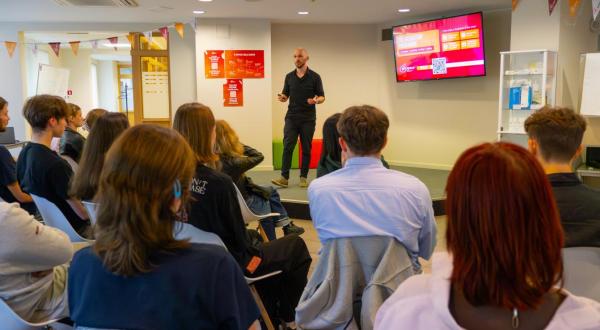Research on the Relationship Between Cognitive Reserve and Healthy Cognitive and Brain Ageing
Western societies are currently experiencing a trend of rapid ageing. Recognising the risk factors associated with ageing and the need for rapid action, the period 2021-2030 has been declared the Decade of Healthy Ageing.
The study and transformation of lifestyles is seen as one approach to delaying or even preventing neurodegenerative diseases, especially dementia, highlighting the importance of so-called cognitive reserves in healthy cognitive ageing.
Research into and changes in lifestyle are seen as one approach to delaying or even preventing neurodegenerative diseases, especially dementia, with particular emphasis on the role of so-called cognitive reserves in healthy cognitive ageing.
The aim of this dissertation was to investigate the relationship between cognitive processes and the volume of specific regions of the brain and cognitive reserves, which means the cognitive and social experience accumulated over a lifetime. The study focused on adults without a diagnosis of neurodegenerative diseases. The hypothesis proposed was that adults with higher levels of education, engaged in work of higher complexity, and more intellectually and socially active, would exhibit better cognitive processes and brain volume, both cross-sectionally and longitudinally.
The results of the study partially supported the hypothesis and led to the conclusion that a higher education level, an active working life, and doing moderate-intensity physical activities and various mental exercises are associated with better short and long-term indicators, information processing speed, and verbal fluency. On the other hand, engaging in more responsible work of higher complexity is associated with larger cortical volume in regions considered particularly vulnerable to dementia and involved in social activities, such as face recognition, verbal skills, etc.
It is important to highlight that the results of the study point to a continuity of activities, i.e., that cognitive and social activities should continue throughout life and may have a compensatory role after the reserves created by education and employment have been exhausted.
The study was carried out under projects No 8.2.2.0/20/I/004 “Support for involving doctoral students in scientific research and studies” and “The Role of Motor Reserve in Cognitive Dysfunction in Older Adults (MORE-COG)”, 6-ZD-22/27/2022.
Kristīne Šneidere will defend her doctoral thesis “Relationship between Cognitive Reserve, Cognitive Functioning and Brain Volumetry in Non-Demented Older Adults” on 24 May 2023.
Related news
 Develop your business skills and bring ideas to life with the B-Space incubation programmeFor RSU Employees, For High School Students, For Students, Innovation
Develop your business skills and bring ideas to life with the B-Space incubation programmeFor RSU Employees, For High School Students, For Students, Innovation


